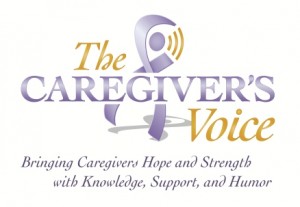“Navigating the Net Wisely in a Health Crisis” published in the New York Times, generated renewed caregiver and patient interest in the role of the Internet as a credible source of health information. (Link at end of article.)
Below are responses to questions sent to Ask The Caregiver’s Voice, plus a bonus answer on presenting online information to your doctor without turning him/her off.
 How good is the Internet in helping me know more about an illness or disease?
How good is the Internet in helping me know more about an illness or disease?
We live in a world of delayed appointments followed by hurried doctor visits. The Internet fills a gap in our understanding. Doctors cannot know everything about a condition or treatment. Information gathered online broadens our perspective and increases our familiarity with a health condition. If the results of our online research are similar to what our doctor says, we’ll be steps ahead by more easily comprehending the words used to label the condition our doctor is treating.
How do we search the Internet for information about an illness, disease, or treatment?
I usually search for the disease or illness using Google. I also search using Firefox and sometimes Bing. There are many options available to us– Yahoo, Ask.com, About.com and Wikipedia. More specific health related options include MayoClinic.com and WebMD.
While my neighbor fought prostate cancer, his wife gave me updates. I searched online and provided her with information she could share with her husband’s oncologists. Some of the search results took me to Wikipedia, others to the MayoClinic.
Besides searching online, many social networking sites now give family members the opportunity to share health information and support. Some, like CaringBridge give the patient or caregiver the ability to create a website in order to update everyone at the same time while sharing support.
Others like Caring.com and Treatment Diaries [Update 10/22/2018: Server not found.] bring people together who are walking on the same road of illness to share information, encouragement, and support.
Although online resources provide a wealth of information, only your doctor can help you put it in the context of your own or loved one’s health condition.
WARNING: Doctors, particularly specialists, often get unnerved when presented with information from the Internet. There’s a very good reason for their response. Too many patients read something they find online and then “challenge” their doctors with this information. Doctors have spent years eight years in higher education followed by residency training, then years of experience. Specialists have spent even more years.
When a patient confidently boasts, “Doctor…I was researching online and this article says, _____. And then there was the report about one patient who made a complete recovery from ____ treatment. I’m tired of living with this condition; can you prescribe this treatment for me?”
Over time, your doctor gets tired of hearing, “I was researching ONLINE…” and shuts down. Instead, s/he hears, “Blah, blah, blah, blah, blaaaaahhh” or worse, nothing at all.
How can I best present the results of my online research to my doctor without turning him/her off?
A good way to get around irritating your doctor is to present what you learned as a care partner. Make sure to acknowledge your awareness of your doctor listening to patients cite information found on (questionable) websites, while assuring your doctor that you are serious about being an advocate for your own care. Say your piece clearly then wait for the doctor’s feedback.
“You may be tired of hearing patients tell you what they’ve learned online. [Acknowledge the doctor’s potential reaction.]
As an advocate of my own care [You’re a patient who takes his/her healthcare seriously.], I need your perspective [enlisting your doctor’s expertise] on a recent study published in Johns Hopkins Health Alerts [a credible source] about the same commonly prescribed treatment you’re recommending.
The study finds a 49% failure rate for people my age and with my chronic condition. [Most doctors will be impressed!] However, they cite the earlier treatment that still works 86% of the time for people my age.
Doctor, have you seen this study? [You’re inviting your doctor to serve as your partner in care by making sure s/he also has the most recent information.] Since you’re most familiar with my health history, I’d feel more comfortable knowing your thoughts on these study results. [You’re showing your doctor a sign of respect.]
Encourage a healthy dialogue with your care partner–doctor, by asking questions based on the information you gathered online. The information you find will help you to know what questions to ask. You and your doctor will have a more productive dialogue about your condition and treatment options.
As a Baby Boomer and Patient Advocate, I believe we can no longer be submissive and obedient to every utterance from our doctors. Today, we serve as PARTNERS with our physicians in our own or loved one’s care. Any quality physician who feels likewise will appreciate an involved (and respectful) patient/family member/advocate.
![]()
Additional information:
Patients and doctors will communicate more openly, clearly, and meaningfully, resulting in fewer misdiagnoses, higher patient-doctor satisfaction, greater treatment adherence, and reduced fatality risk. For more information click on Rx for Communicating with your Doctor/Patient.
TCV article: Should you bring a friend or relative with you to the doctor’s office?
TCV article: What should I do when the doctor speaks way over my head?
NYT article: Navigating the Net Wisely in a Health Crisis
[TCV Update 2/14/2022 NYT article, subscription required]
Brenda Avadian, MA
Alzheimer’s / Dementia Caregiver, Expert Spokesperson, Coach, and Author
SIGN UP for The Caregiver’s Voice monthly Newsletter
Print copies of this and share with your clients or fellow support group members.
© 2011, 2010, 2008 Brenda Avadian, MA








